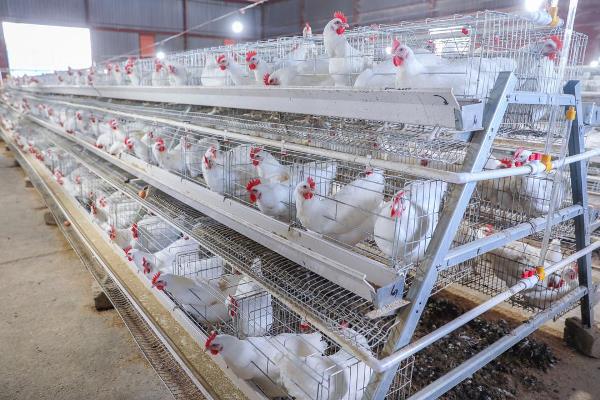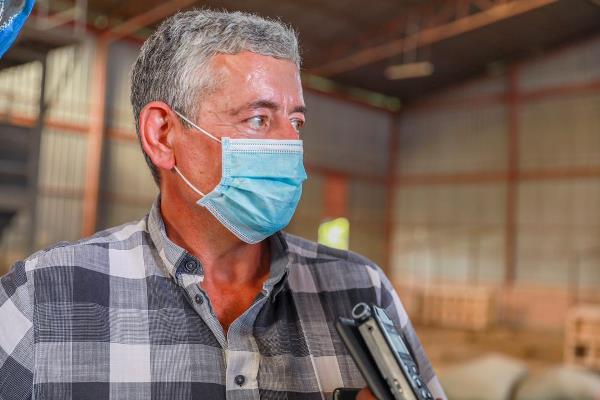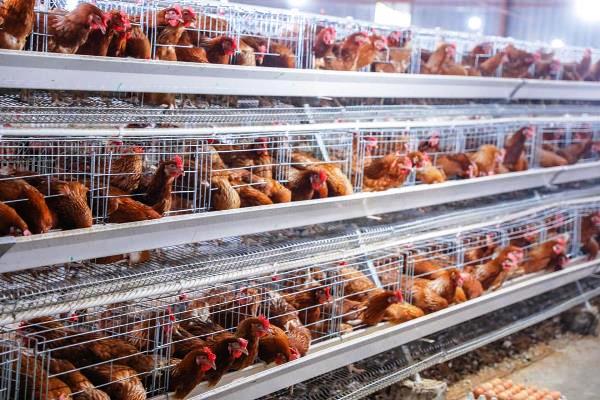
Poultry East Africa Limited, a poultry company based in Mayange, Bugesera District is heavily investing to reduce chicken imports in Rwanda to zero by providing chicks to farmers across the country.
“Two years ago, 100% of all layer chickens were imported, and because of what we are doing, we are going to reduce that to zero, and it’s the Government strategy to reduce imports, and do locally grown,” Neal Roper, the General Manager of Poultry East Africa Limited, and Managing Director of Chicktex Limited says.

Neal Roper, the General Manager of Poultry East Africa Limited
Neal says they have stocks of exotic eggs which they hatch to produce layers for local farmers and chicks produced that are sold at one day old, on top of that the hatchery produces broiler chicks or chicken grown for meat.
The company also produces chicks for export to Burundi and the DR Congo particularly in North and South Kivu provinces.
“Basically the chickens we have for layers, they are also sufficient, and the most widely used chicken in the world, we are bringing it here to Rwanda.” he says.
Tree Check Africa Limited is also subsidiary that distribute broilers primarily throughout Kigali, the company produces 16,000 to 17,000 chicks both broilers and layers per week, the hatchery produces 100,000 chicks per week but intends to increase its production capacity to 250,000 chicks per week in the next twelve months.

Neil explains that the chicks are however susceptibility to diseases which necessitates to be kept in hygienic cages. “For safety, visitors who come here have to keep clean with hygienic washing chemicals to avoid any contagious infections between them and the chicks.”
He underlined that the company doesn’t import any chicks except parent stock which produce chicks. “We import them from Europe and our prices are at least 20% low the import prices and our quality is no different from the imported products.”
These chicken comprises 70% of pure protein and currently the company is working with an NGO to see if they can introduce local chicken breeds to local farmers in different villages, this’ because introducing exotic broiler breeds to local farmers would make them susceptible to diseases as they are weak and succumb to infections easily especially at six weeks old.
Normally the broilers are sold within six weeks and processed into finished meat products after a month and two weeks and a broiler lives for two years at production level. While a local layer produces 50 to 100 eggs per year, the exotic layer produces 300 eggs.
According to Neal parent stock chicken eats between 105 to 112 grams per day to produce an egg which makes the Hy-Line breed cost friendly. “In any poultry business, feeds are approximately 70% costs of the business.”
Many farmers complain about the expensive cost of chicken feeds which extorts on their businesses but Neal says he gets concerned on the quality of feeds rather than price because it applies to everyone.
Chicken feeds are the highest cost in the poultry business and anything to reduce that makes chicken cost friendly. This is one of the major reasons that Poultry East Africa Limited is investing in innovation and modern practises to achieve its targets.
